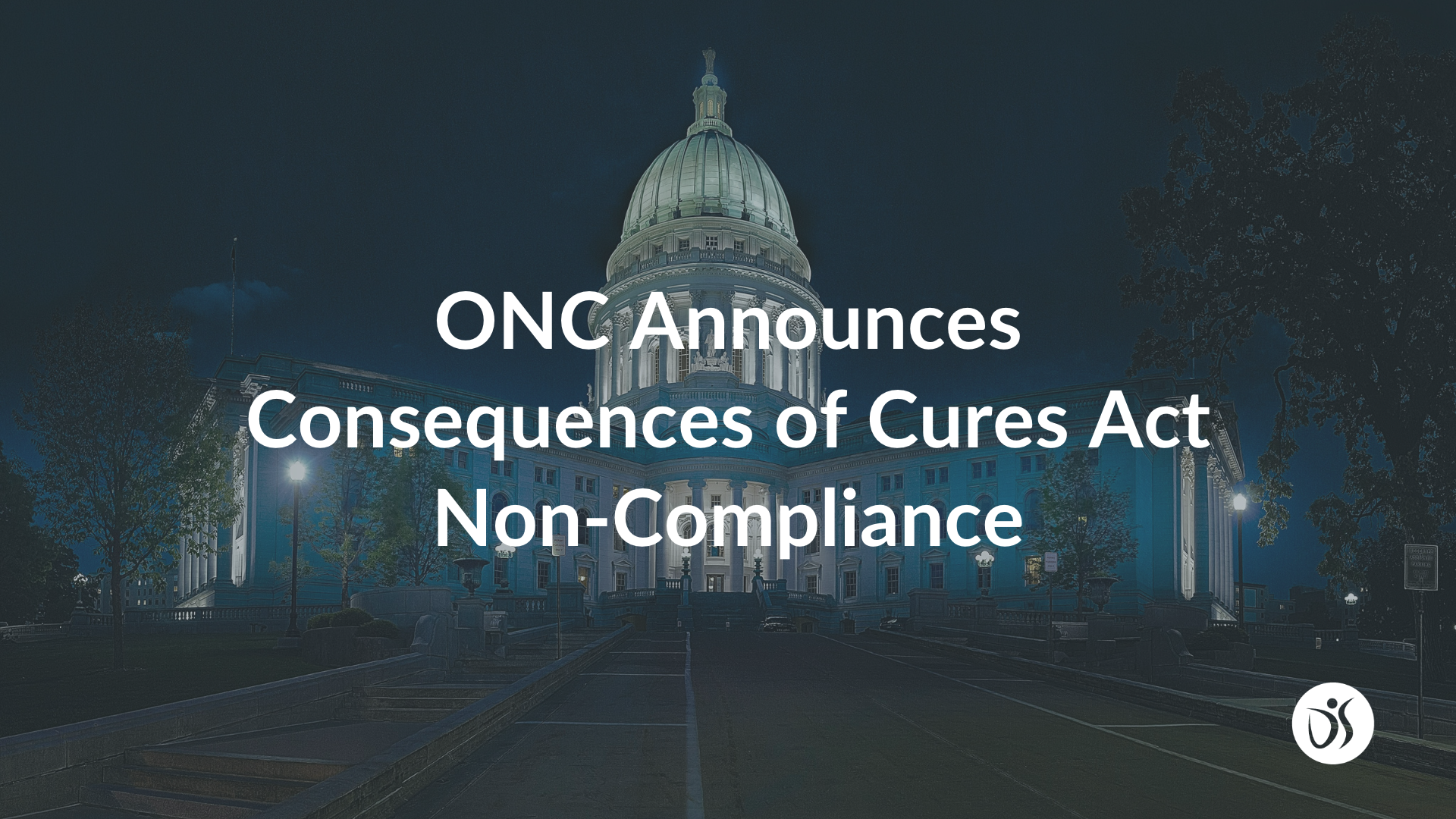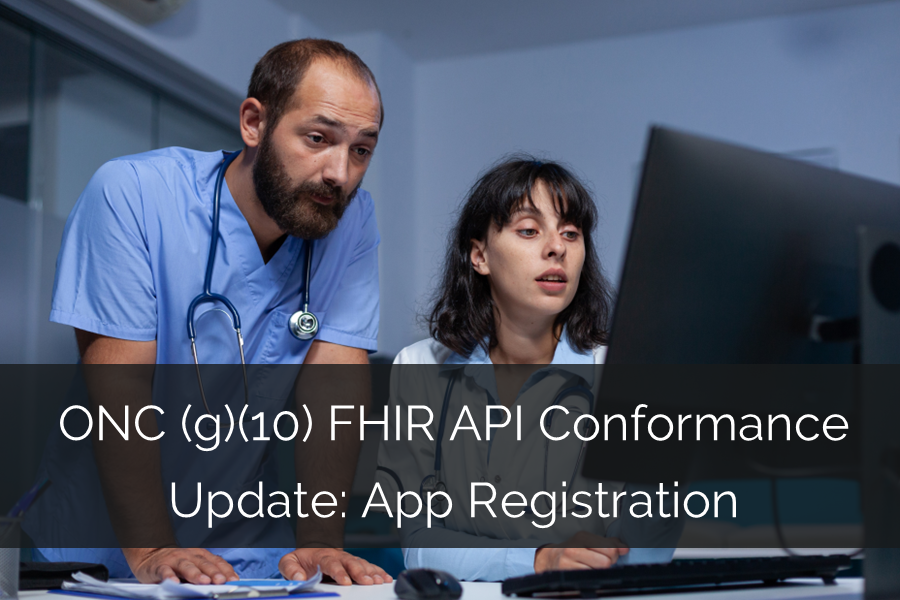ONC Announces Consequences of Cures Act Non-Compliance
As the year is coming to a close, so is the need for a 2015 Edition Certified EHR to have a (g)(10) FHIR-based API in place to provide it to their end-users, starting January 1, 2023. There have been speculations regarding an extension on the upcoming (g)(10) deadline, however, that does not seem to be the case. The ONC recently announced its punitive action plan to deal with non-compliant health IT vendors, stressing the fact that:
“Certified Health IT Developers who have not updated their product(s) and provided them to their customers by December 31, 2022, will be considered non-compliant with the ONC Health IT Certification Program requirements and subject to ONC Direct Review. Developers who fail to provide their clients with updated technology by this deadline could have their product(s) terminated from the Certification Program and/or be placed under a certification ban if the non-compliance is not corrected.”
Direct Review Process
The ONC obtains information on a particular Health IT developer via many sources, including ONC-ATB quarterly surveillance notes, referrals from government agencies, and even issues raised directly by end users. If they determine that a Certified Health IT Developer has a non-conformity or a developer has not complied with the Conditions and Maintenance of Certification, they may initiate the Direct Review Process to assess the situation and ensure the developer brings his product back into compliance. The ONC may send a notice of potential non-conformity to the developer in case of a potential non-compliant situation. To rectify the deficiencies revealed during an ONC Direct Review, EHRs will need to provide a Corrective Action Plan (CAP). The ONC can even suspend or terminate the affected certification(s) and/or issue a certification ban at any time if the identified issues aren’t corrected.
This Direct Review process also presents developers with the opportunity to appeal a suspension, termination, or certification ban determination made by the ONC regarding their product. Once an appeal request is received by the ONC, a hearing officer is appointed by the National Coordinator to adjudicate the request on their behalf. Unless the ONC cancels the suspension/termination, the determination issued by the hearing officer will be final.
What is a Corrective Action Plan (CAP)?
A Corrective Action Plan contains a comprehensive plan of action, including a timeline, to bring a product(s) back into full compliance with the Certification Program requirements. It Includes:
An assessment of the nature, severity, and extent of the nonconformity.
A detailed description of how the Developer will resolve the identified issues and notify the affected end users.
A timeframe under which all elements of the CAP will be completed.
Other elements as described in 45 CFR 170.580(c)(2)
The ONC can also ask for additional information to be included in the CAP. However, the EHR Developer is ultimately responsible for ensuring that the CAP identifies the appropriate steps for compliance.
Points To Note:
Along with being (g)(10) FHIR API certified, an EHR must have the capability to provide that FHIR API to all its customers by December 31st, 2022.
While restoring compliance, your EHR will be placed under a certification ban, and your product listing on CHPL will not have a valid CMS certification ID.
The loss of a valid CMS certification ID would eliminate the ability of your customers to submit MIPS data while you restore compliance.
To facilitate public transparency, the information about a Direct Review that results in a CAP will be publicly displayed on the EHR’s CHPL listing. You wouldn’t want your competition exploiting that.
Satisfy ‘Certify and Provide’ Cures Act Mandate
There are multiple elements that an EHR needs to satisfy beyond just the (g)(10) Certification to maintain the Cures-Update Certification status. This involves meeting the Conditions and Maintenance of Certification, including the Real World Test, and other components, such as:
Identity Manager
Developer Portal Validation and Management
App Directory Management
Patient/Representative Invites Manager
Patient-Facing Third-Party App
It is vital you move fast and onboard all your providers before December 31, 2022. BlueButtonPRO’s streamlined integration process and comprehensive solution (includes all the above components), enables your EHR to meet the requirements before the deadline.











